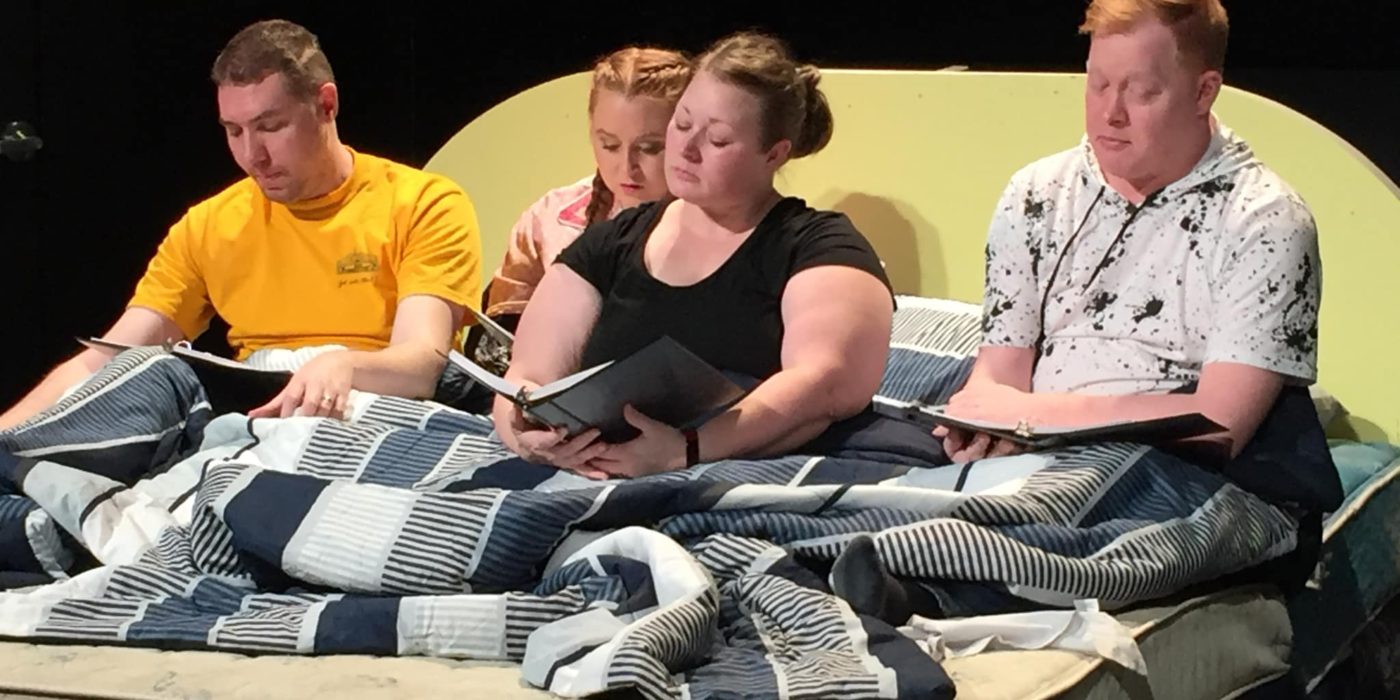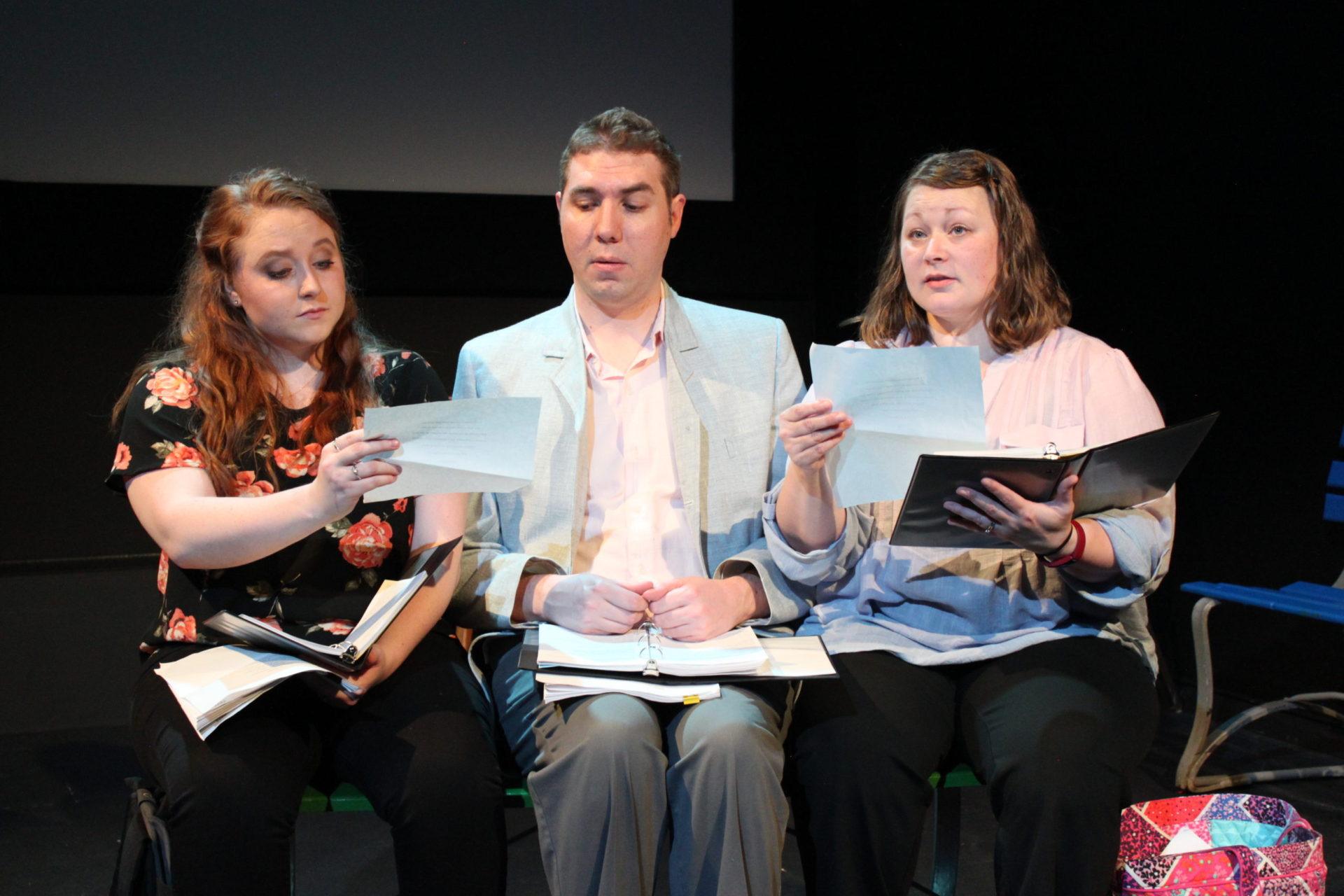Last January (2020) was the first time I workshopped a play.
It was the first play I wrote. I had no idea what to expect or what would happen, because I found out that “workshopping” a play can be a LOT of different things.
So what is workshopping a play, you ask?
(I’m counting on you to ask this question otherwise you’ll probably stop reading. You don’t even have to ask it out loud, just ask internally!) It can range from a person reading your play and giving feedback all the way to a staged reading that includes some of the elements of a production like costumes and set pieces. My experience included nearly the entire range of workshopping, and that’s what this post is about.
First, I started by having people read my piece and give feedback.
I asked friends, family, and then some local theater professionals. I wanted to know if what I wrote was total garbage or if I had something worth exploring. Specifically, I asked people who I knew would be honest with me. Those people told me it wasn’t total garbage and gave me their thoughts. And most importantly, the voice deep inside me told me the play wasn’t garbage, so I proceeded.
Second, an opportunity to have my play read by a group appeared.
My local theater started a “Readers Theatre” group where people could come together and read plays, with the ultimate goal of selecting a piece to stage read—as an option for those want to be involved in theater but not have the pressure of learning lines and major rehearsal commitment of a full production. After attending the group, I asked if my piece could be read by the group. The group’s facilitator agreed, and a few months later my play was read.
When my play was read, my authorship was unknown by the group—in the hope that the group would share more honest and direct feedback. However, the group easily figured out it was written by me, due to my nervousness, sweating, and lack of comments. Once again, the feedback was mostly positive, so I proceeded.

At this point, I should say that negative feedback should not stop you, it should fuel you.
Anything negative that was said about my play I internalized, pondered, and either rejected or accepted. It’s important to realize as the playwright that YOU are the author and you get to make all the choices. I worked with some pretty great people who helped me realize that early on. (And I learned most things outside of the dialogue are a “director’s problem,” but that’s a post for another day!) Much of the negative feedback I received, I used to make my play better AND make myself a better writer. Hearing negative feedback is the easy part; the hard part is figuring out if that feedback is valid or crap. Only you as the writer can distinguish that for your piece. But back to the steps!
Third, my play was selected by the Readers Theatre group to be the stage read play.
This step was outside my control, but it never would have happened if I hadn’t put my play out there. In my opinion, this is where the real workshopping started.
Time for another aside…
I know there’s lots of debate if workshopping plays is good or bad. I’m not going to debate the merits, as I definitely don’t know enough to weigh in. But I will say it was very helpful for me as a new playwright to watch a director interpret my piece, see other actors bring my characters to life, and take all of their feedback. The focus of all of this was to get my play ready for the stage and get it as close to a real production as possible.
So, as you can guess, my fourth step is getting the piece produced.
The point of workshopping my play was always to get it produced and I will keep pushing until it is produced. In truth, one of the reasons it wasn’t fully produced was so I could enter it into contests. By entering it into contests, I hope to gain more exposure for the play and myself as a writer. This blog is all about joining me on the play writing journey and sharing what I learn—so come along!

